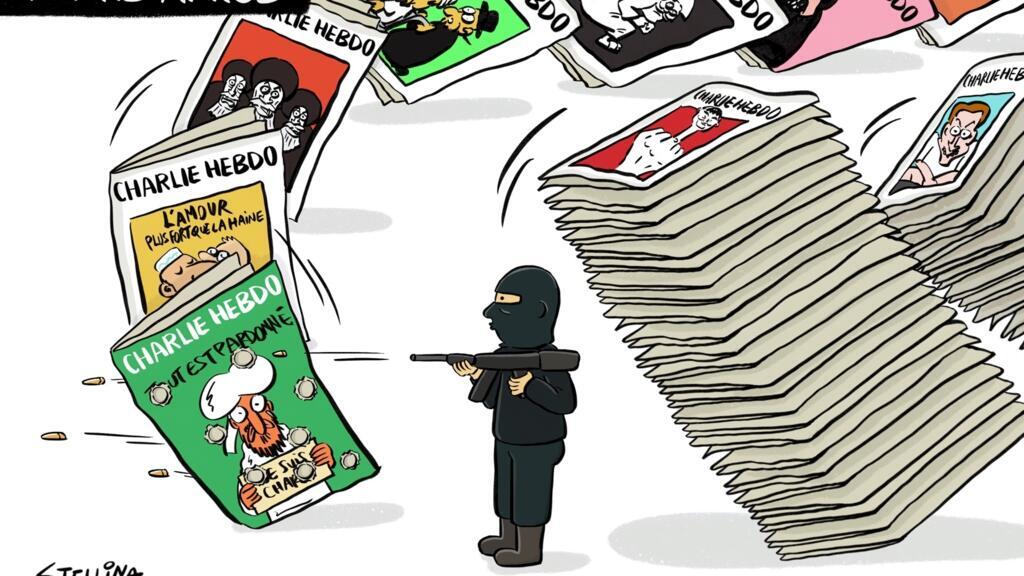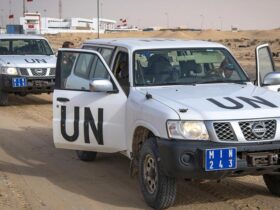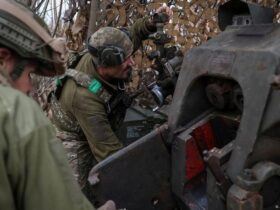Without external support, neither side in Sudan would have been able to prolong the war.
The conflict has caused the country to become one of the world’s worst humanitarian disasters and, most recently, there have been mass killings and atrocities against Sudanese civilians in Darfur’s regional capital, Al-Fashar.
The war first broke out in April 2023 when a local militia, the Rapid Support Forces, or RSF, and the Sudanese Armed Forces, or SAF, broke out over the integration of the paramilitary RSF into the regular army.
Given the ongoing fighting in Darfur, the death toll can only be estimated, but aid organizations and the United Nations have put it at more than 140,000. Nearly half of Sudan’s population of 51 million depend on humanitarian aid. Famine and disease are widespread, and much of the country’s infrastructure and agricultural land has been damaged.
Observers say Sudan’s internationally recognized government, led by General Abdel-Fattah Burhan, who also heads the SAF, is supported by Egypt, Turkey, Russia and Iran. The Egyptians and Saudis deny supporting any Sudanese group with arms. The RSF reportedly has UAE support, although the Emiratis deny this.
“The Rapid Support Forces had many suppliers for weapons and fuel during the war, but a central provider remains the UAE,” Hagar Ali, a researcher at the German Institute for Global and Area Studies (GIGA) think tank, told DW.
UAE’s controversial agenda in Sudan
The UAE has repeatedly denied supporting the RSF, calling such allegations a media campaign by the SAF and demanding an apology.
On Thursday, Abu Dhabi also condemned RSF atrocities against civilians and announced $100 million (€86 million) in humanitarian aid.
However, the United Nations and human rights organizations have often found evidence of military supplies from the UAE. Independent analysts routinely conclude that weapons and ammunition used by the RSF were of Emirati origin.
“The material includes advanced Chinese-made drones as well as small arms, heavy machine guns, vehicles, artillery, mortars and ammunition,” sources at the US Defense Intelligence Agency and the State Department’s Intelligence Bureau said. told the Wall Street Journalan american newspaper, This week.
Additionally, a January 2024 UN report stated that militias aligned with Libyan General Khalifa Hiftar use pre-existing smuggling ties to supply fuel, vehicles and ammunition to the RSF.
“We know that the UAE has smuggled weapons directly from the Libyan border to Sudan, but also through Chad and Uganda,” Ali confirms. “In turn, the UAE, as traditionally the largest importer of Sudanese gold, has a vested interest in maintaining its access to Sudan’s gold.”
For the RSF, Sudan’s rich gold resources, which lie primarily in territory under their control, have become a key currency for purchasing arms and evading sanctions.
Ali added, “It is safe to assume that the weapons now in use in Sudan are not from just a handful of providers, but are weapons that have been smuggled throughout the Sahel.”
In January, the outgoing US administration under former President Joe Biden imposed sanctions on both sides. At that time, the US Treasury Department also sanctioned seven UAE companies and accused them of providing weapons, financing and other support to the RSF.
Other interests in Sudan
Egypt has been a major supporter of the SAF and recognizes Burhan’s government as the official Sudanese administration. according to a overview Egypt has trained SAF pilots and provided drones, according to the Institute of War, an independent think tank, which Cairo denies.
Egypt aims to keep the conflict on the Sudanese side of the border and hopes to eventually allow millions of Sudanese refugees to return.
Another supporter of the SAF is Iran, which has also provided drones. Tehran hopes to secure a naval base on the Red Sea that will help it continue supporting the Houthi militia in Yemen. Sudan is known to be a logistics hub for the Houthis.
Turkey has also provided drones and missiles to the SAF. Here Ankara is interested in securing its access to the Red Sea.
Achim Vogt, country director for Uganda and Sudan at Germany’s Friedrich Ebert Foundation, told DW that despite the involvement of the Russian-sponsored Africa Corps on behalf of the RSF, Russia plays a comparatively small role in Sudan.
“They have economic interests when it comes to gold exports and the port of Port Sudan, but they have made it relatively clear that they have no interest in intervening in what they call an internal conflict,” he said.
Can ‘Quad Initiative’ help?
In Vogt’s view, the four countries making up the so-called “Quad initiative” – the US, Egypt, Saudi Arabia and the UAE – would be the states that could exert real influence in Sudan, despite various alliances with both sides. The initiative was intended to be a roadmap to end the war or, at least, a humanitarian ceasefire.
Vogt said that if these countries united, perhaps with the support of European countries, they could return to international humanitarian law, end human rights violations, and improve humanitarian conditions for the civilian population.
However, the Quad talks were to be held in Washington on October 26 this year bring the warring parties together The agreed three-month ceasefire ended without any results. The same day, the RSF captured al-Fashar and escalated mass killings and other atrocities.
For Letitia Bader, Horn of Africa director at Human Rights Watch, the scale and seriousness of the latest abuses in and around al-Fasher now requires that “there be consequences for the leadership of the Rapid Support Forces and their supporters, particularly the United Arab Emirates, which has continued to provide support … in the face of clear evidence of crimes,” she told DW.
“We would like the UN Security Council to move immediately with sanctions against the leaders of the rapid assistance forces,” Bader said. “We call on the international community to ensure political and criminal accountability.”
The RSF arrested several of its own fighters on Friday amid international outrage over the massacre and other crimes. But observers say atrocities continue.






Leave a Reply